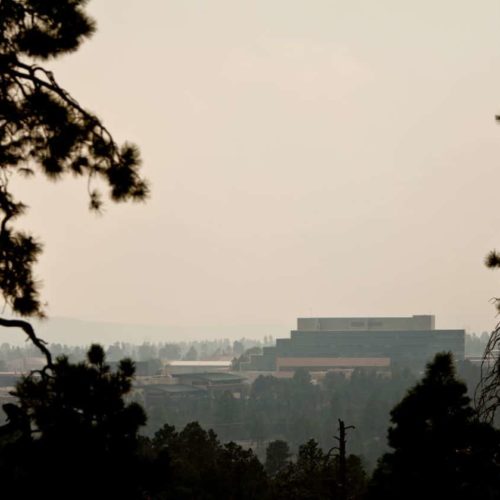Introduction
An auditor at the Energy Department has concluded that one of the country’s principal nuclear weapons laboratories improperly disclosed sensitive national security information due to poor workplace practices.
Gregory Friedman, the department’s inspector general, said in a report released on Feb. 2 that Los Alamos National Laboratory, in New Mexico, had “not always adequately protected and controlled classified information.”
His public account was an unclassified summary of a secret document, and did not state precisely which secrets had been revealed by the laboratory or characterize their importance.
But sources say his probe included an examination of allegations that James Doyle, a nuclear security analyst at Los Alamos, disclosed classified information when he published a Feb. 2013 article in an international journal that supported nuclear disarmament. The article was reviewed by classification officials, who approved its release, but Doyle was later told he improperly included classified information.
A Center for Public Integrity investigation last year concluded that the sensitive disclosure in Doyle’s article – which officials have not detailed – was most likely an offhand reference to the existence of Israel’s nuclear arsenal. Israel’s national policy is not to confirm or deny its arsenal, and U.S. policy follows along.
The fact that Israel has nuclear weapons is however undisputed and routinely discussed, except by U.S. government officials, who must tiptoe around the topic by saying that they “assume” or “presume” that Israel has nuclear weapons, or by refusing to comment at all.
As a result, Doyle and other professionals at Los Alamos have said they feel the lab’s security officers were more guilty of overclassification than of improper disclosure. But Friedman did not report finding any instances of overclassification.
Nuclear arms are the principal product at Los Alamos, and after Doyle was first censured over the classification issue and then dismissed from his job in July 2014, Doyle alleged it was done in retaliation for the article’s endorsement of President Obama’s call for a nuclear weapons-free future. Lab officials said Doyle’s dismissal was motivated solely by budget concerns.
Doyle’s treatment provoked protests from scientists and policy experts after the events were disclosed by the Center for Public Integrity. Undersecretary of Energy Frank Klotz subsequently asked the inspector general to probe the dismissal, an investigation that is still underway. In addition, Doyle filed a “whistleblower” lawsuit against the department, which is also pending.
Although Doyle’s case is thus unresolved, Friedman’s report found serious management problems and disarray in Los Alamos’ process of vetting articles to prevent the leak of national security information. It said the classification office acted too slowly to report and correct instances where classified information was available to the public
The report suggested that Doyle and several others who allegedly published classified information had done so because the laboratory’s chief classification officer – whom the report does not name – failed to distribute a specific policy update.
Daniel Gerth was the laboratory’s principal classification officer in charge of reviewing Doyle’s article before it was published. He retired from Los Alamos in May 2014, but when reached this week, rejected the findings in a brief interview.
“The report is in my opinion technically inaccurate,” Gerth said, but declined to comment further.
The report also blamed others. It said that when classification office employees complained about the workplace practices, senior managers dismissed these comments as the whining of a few disgruntled employees. That in turn provoked low morale in the classification office. It said further that there had been a “lack of oversight” by the management of Los Alamos National Security, LLC, the private contractor that runs the lab, as well as the lab’s federal manager.
The report recommended that Los Alamos improve its oversight and ensure that the right guidelines are distributed to employees charged with reviewing documents.
In a written response, Klotz said he concurred with its findings and wrote that “protection of our national security information is a top priority.”
Asked for comment on the report, Doyle said he was disappointed that it did not support his view that his article on nonproliferation was improperly classified after its publication. “I was interviewed for this investigation,” he said, “and I made it clear to investigators that I think mine was a case of over-classification.”
Felicia Jones, a spokeswoman for the Inspector General, wrote in an email that the IG inquiry “was limited to the alleged problems with the management of the classification office” at Los Alamos. “We did not seek to determine whether over-classification, in general, was an issue,” she wrote.
Read more in National Security
Up in Arms
America remains top arms seller to the world
The world’s appetite for expensive weaponry is growing ever-larger, researchers say
National Security
Flagship military university hired foreign officers linked to human rights abuses in Latin America
Senior U.S. officials say professors should have been more carefully vetted


Join the conversation
Show Comments